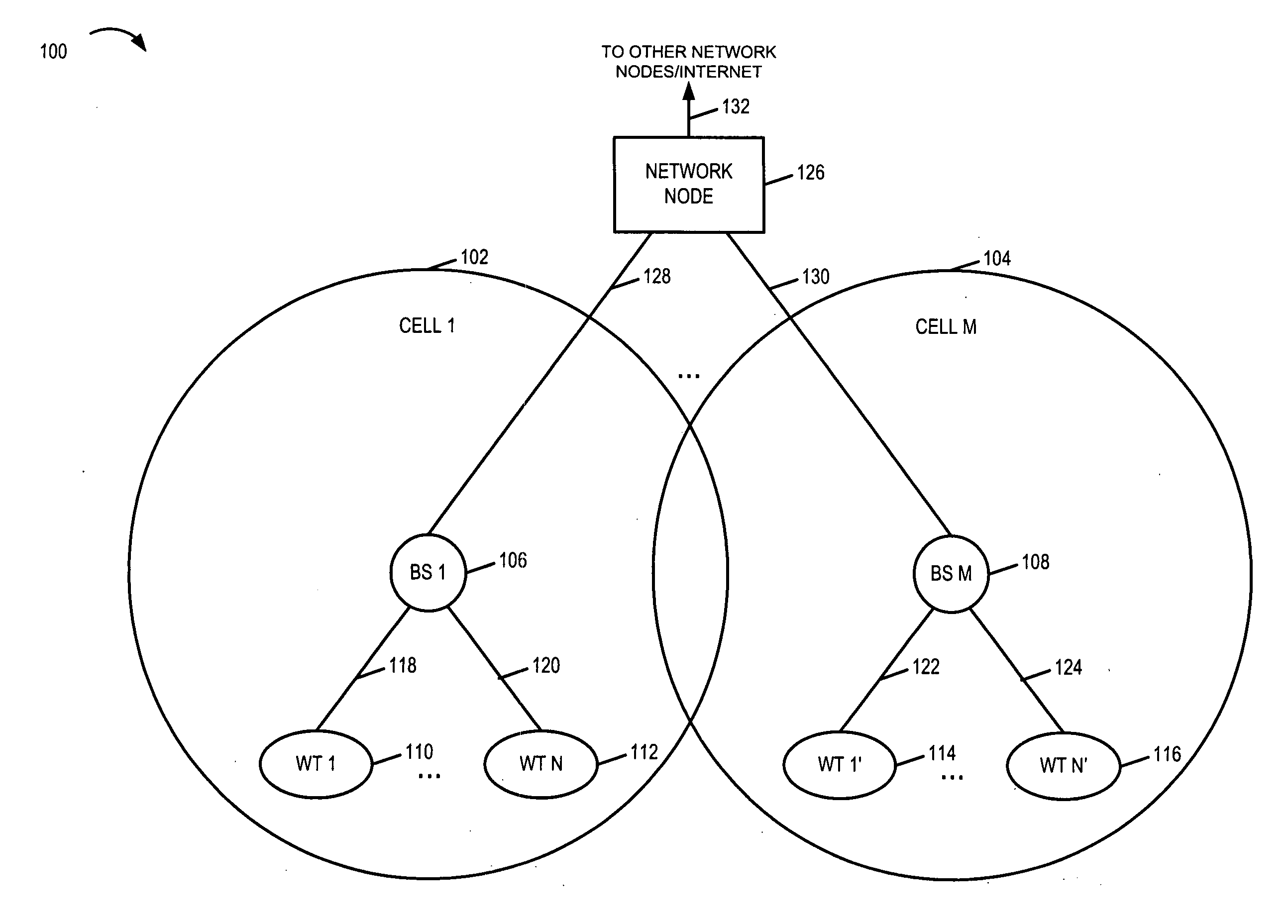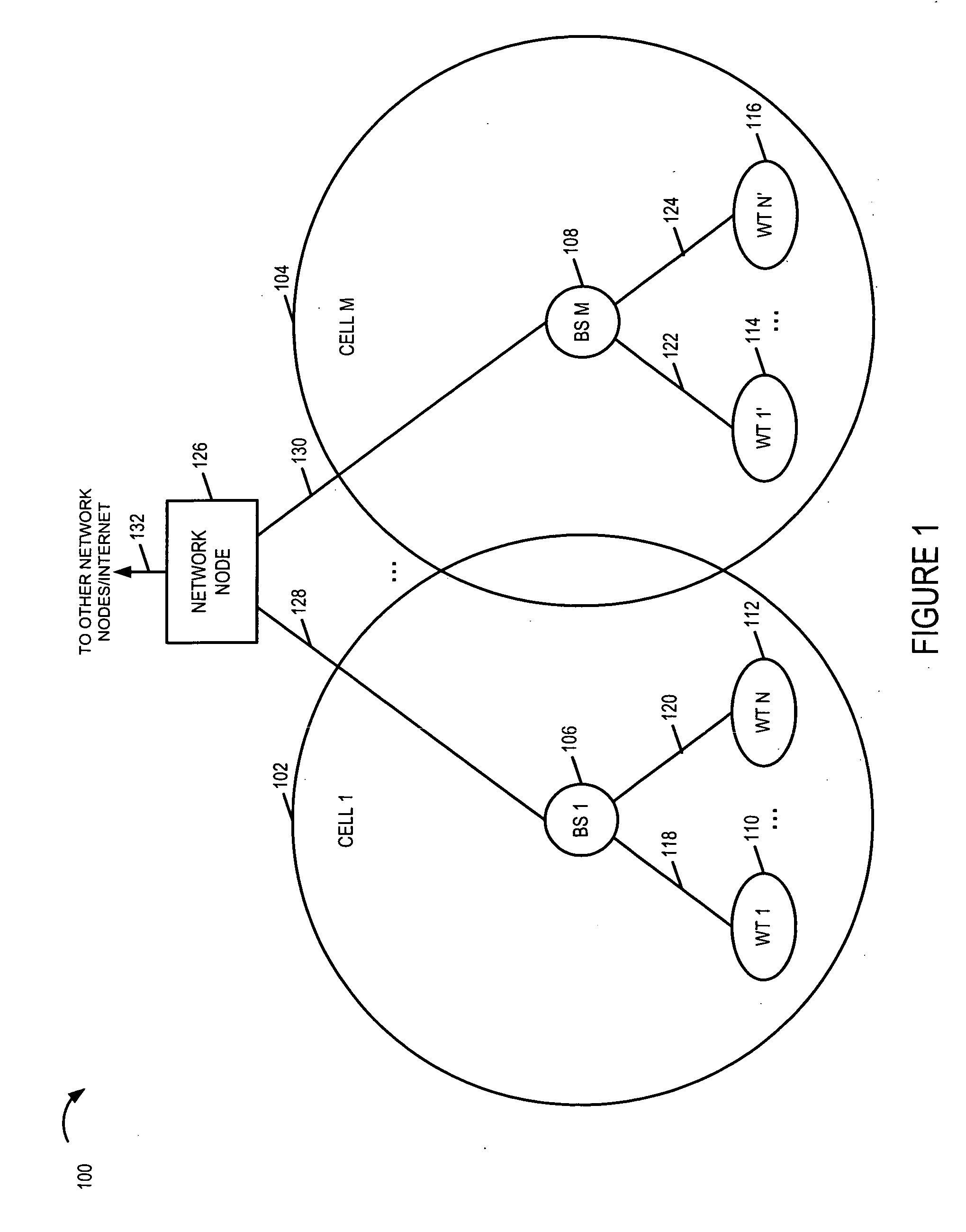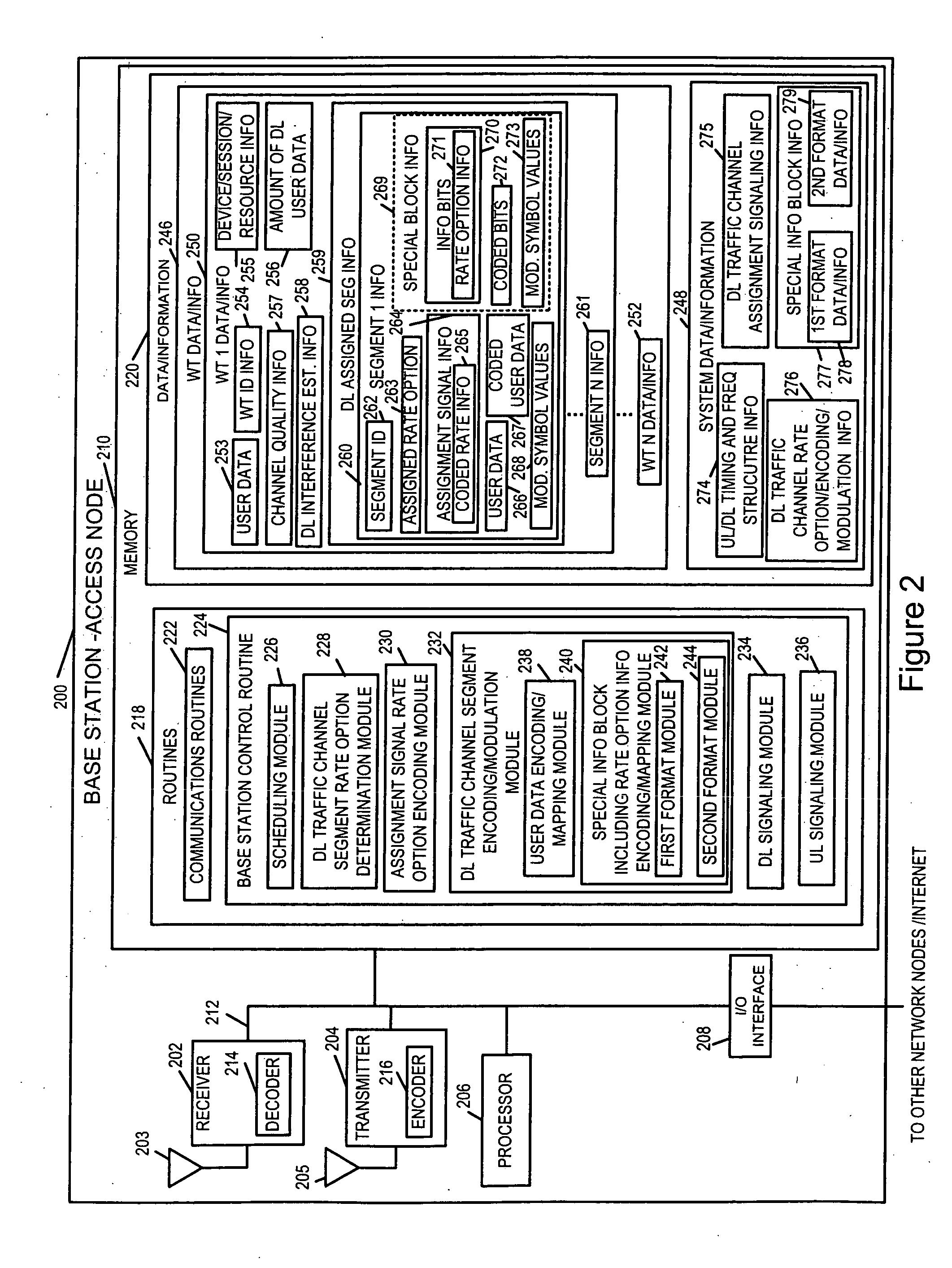Methods and apparatus for implementing and using an in-band rate indicator
- Summary
- Abstract
- Description
- Claims
- Application Information
AI Technical Summary
Benefits of technology
Problems solved by technology
Method used
Image
Examples
Embodiment Construction
[0034]FIG. 1 is a drawing of an exemplary communications system 100, implemented in accordance with the present invention and using methods of the present invention. System 100 includes apparatus and methods directed to improving downlink communications by supporting a plurality of different downlink data rate option options and communicating a selected downlink data rate for a given downlink traffic channel segment in an efficient manner in accordance with the present invention. Exemplary system 100 may be, e.g., an orthogonal frequency division multiplexing (OFDM) multiple access wireless communication system. System 100 includes a plurality of cells (cell 1102, cell M 104). Each cell (cell 1102, cell M 104) represents a wireless coverage area for a corresponding base station (BS 1106, BS M 108), respectively. A plurality of wireless terminal (WTs) (WT 1110, WT N 112, WT 1′114, WT N′116) are included in system 100. At least some of the WTs are mobile nodes (MNs); the MNs may move ...
PUM
 Login to View More
Login to View More Abstract
Description
Claims
Application Information
 Login to View More
Login to View More - R&D
- Intellectual Property
- Life Sciences
- Materials
- Tech Scout
- Unparalleled Data Quality
- Higher Quality Content
- 60% Fewer Hallucinations
Browse by: Latest US Patents, China's latest patents, Technical Efficacy Thesaurus, Application Domain, Technology Topic, Popular Technical Reports.
© 2025 PatSnap. All rights reserved.Legal|Privacy policy|Modern Slavery Act Transparency Statement|Sitemap|About US| Contact US: help@patsnap.com



